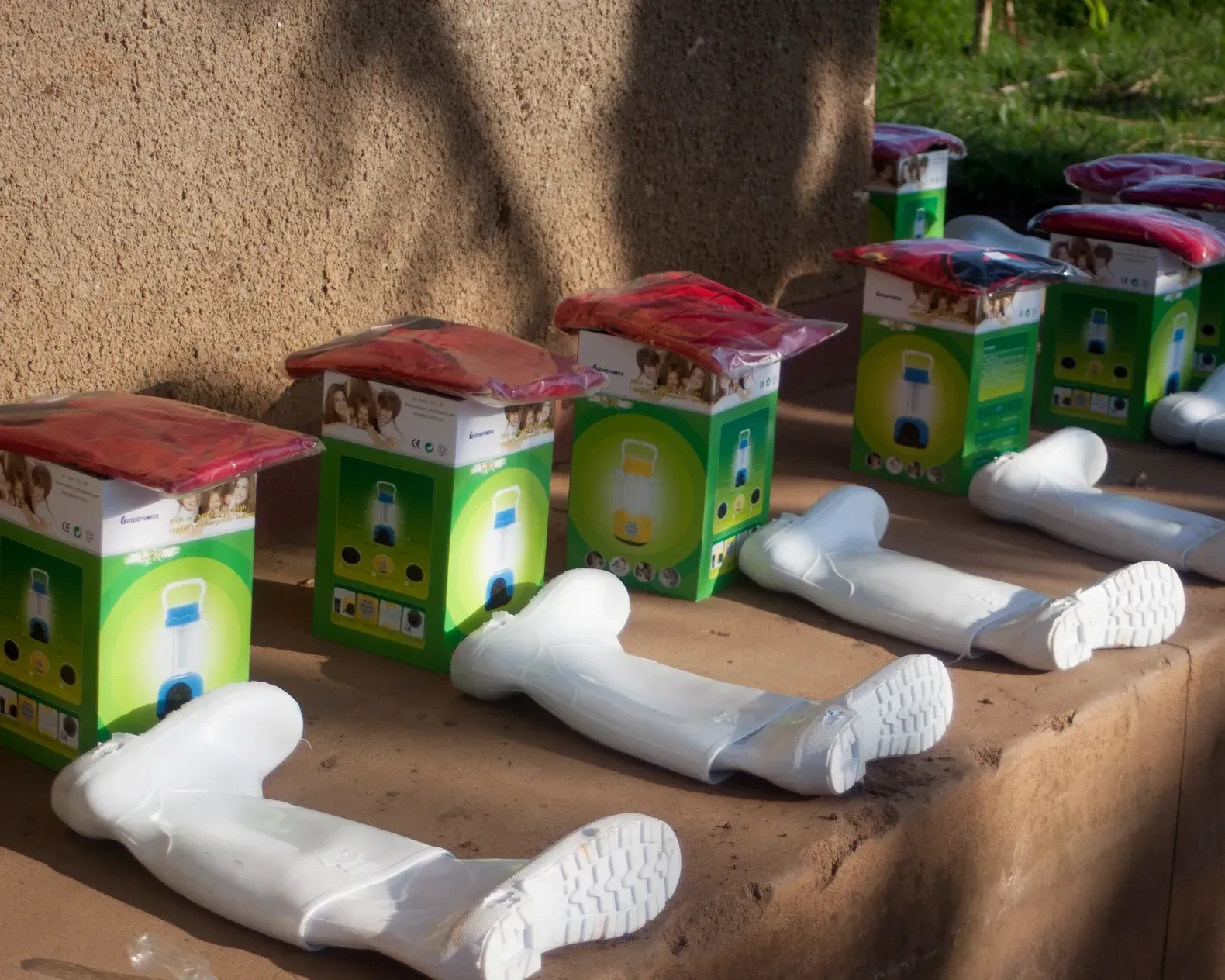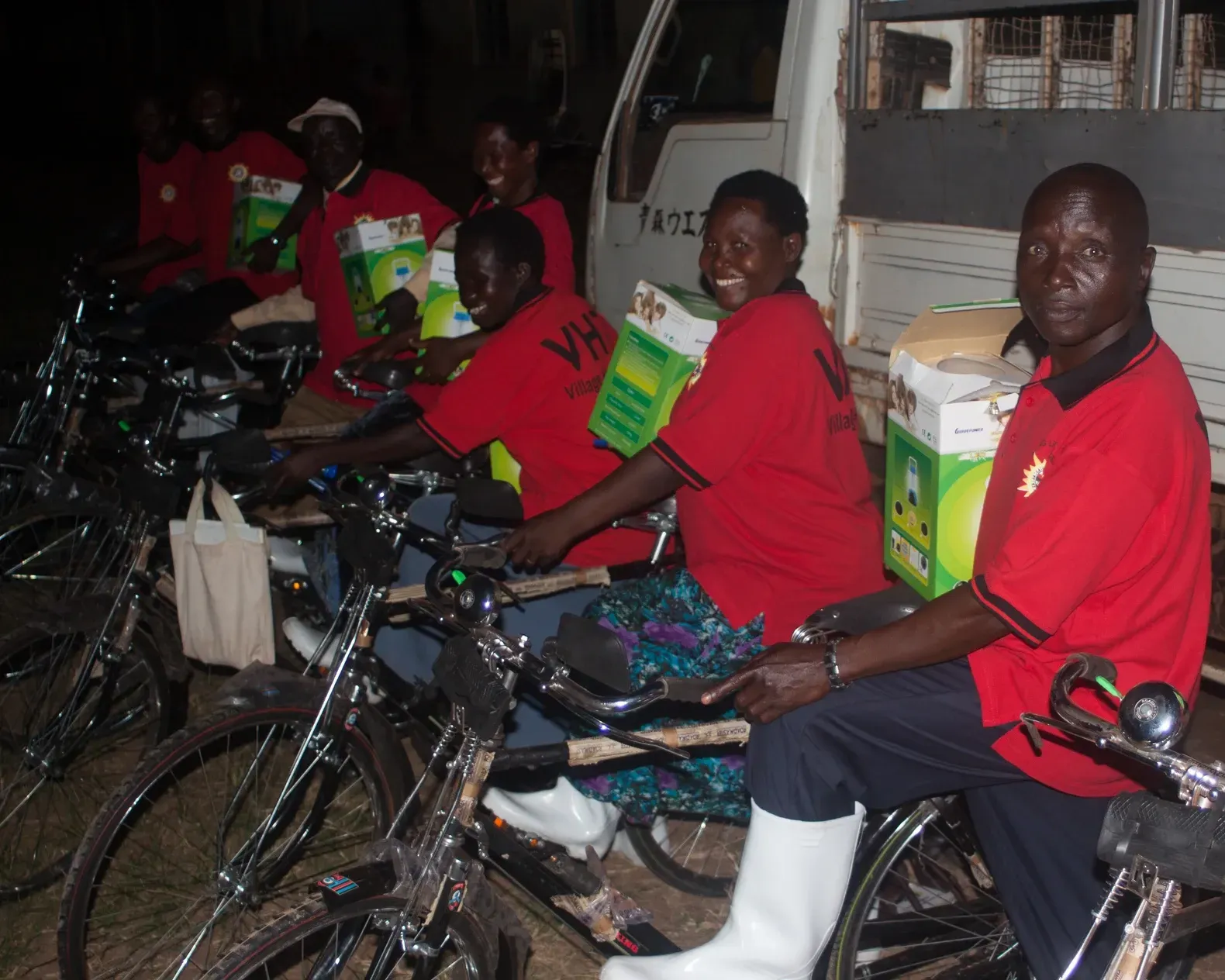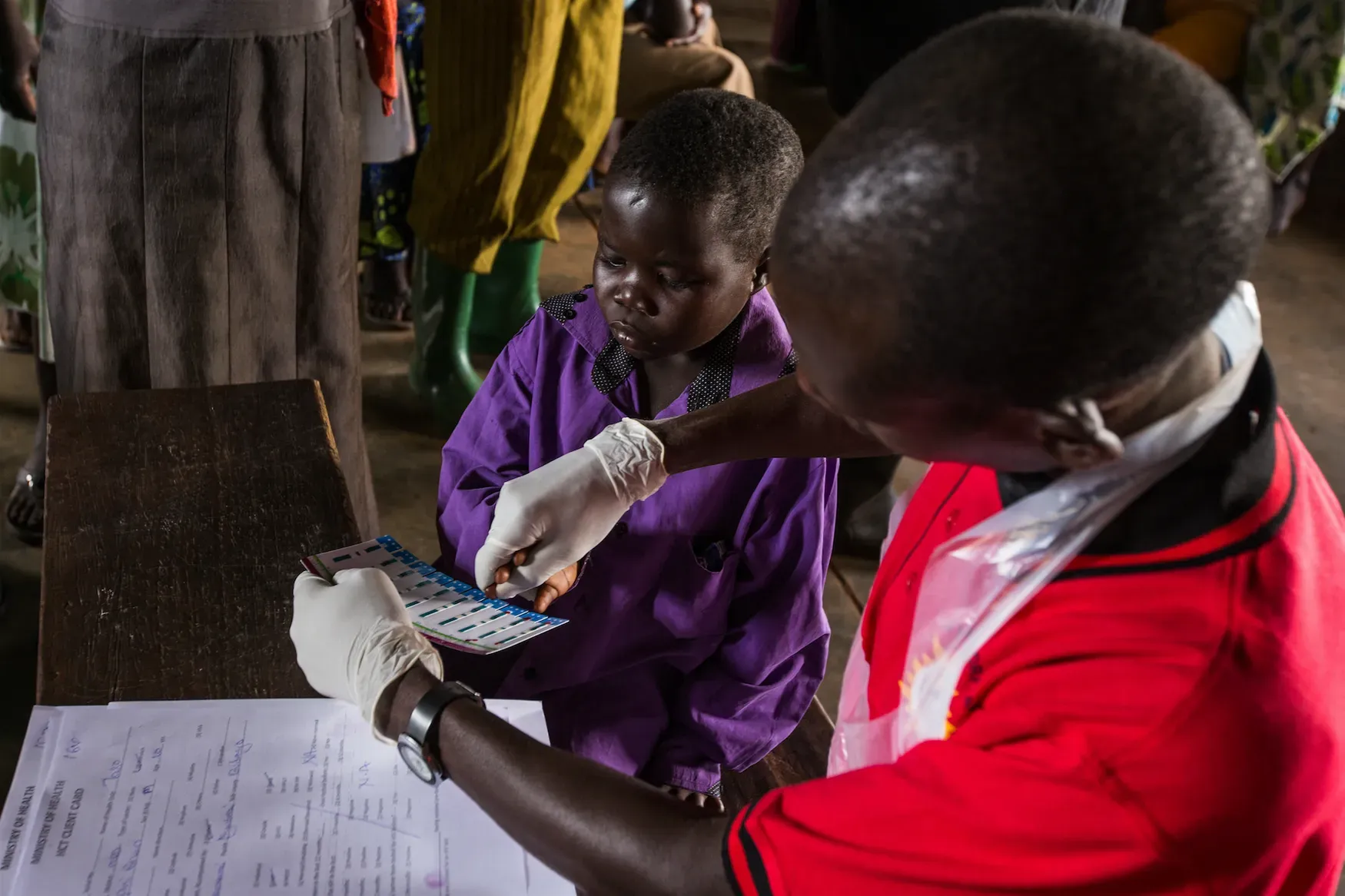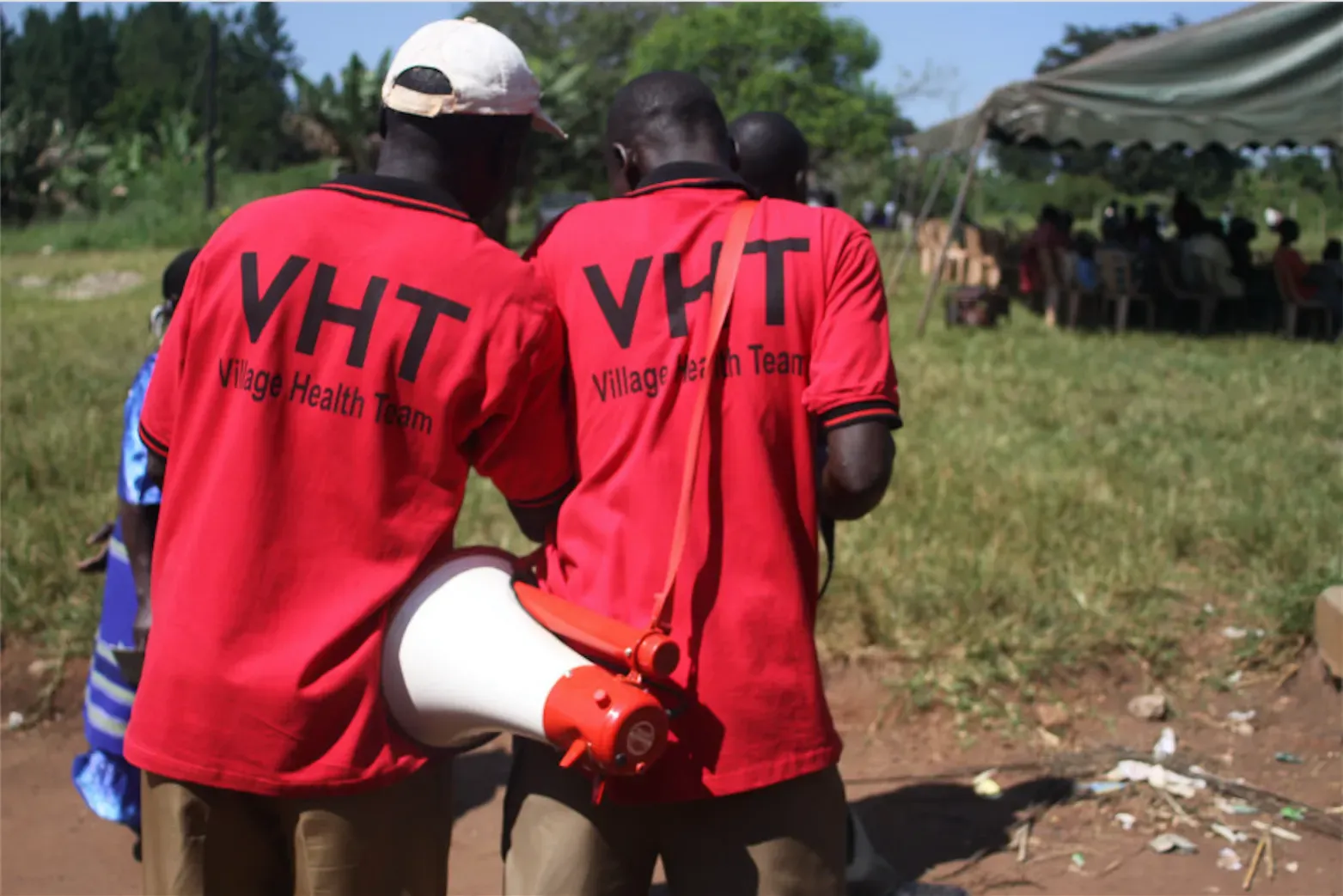Village Health Teams (VHTs)
VHTs are One of the Most Effective Ways to Provide Education and Primary Health Delivery to Poor Communities in Africa
Community Health Workers (CHW's) or Village Health Teams (VHTs) are one of the most effective ways to provide education and primary health delivery to poor communities not just in Africa, but around the globe.
Through research-based efficacy, monitoring, and evaluation, VHTs or CHW's have been shown to:
- Improve on their critical life-saving skills through training, equipping and support
- Enhance the health infrastructure of local communities
- Improve the capacity of the local health care professionals
- Increase trained community health leaders and health care providers for mothers and their children
Creating Trust, Access and Empowerment.
Village Health Teams (VHTs) create the trust and pride of ownership that ultimately enables a long term sustainable solution for local populations to improve their own health and well-being.
Working in partnership with District Health Educators and local hospitals, we recruit, train, equip, supervise, and monitor the work of local individuals who live in rural areas to provide basic education, preventive, diagnostic and referral services year round.
Training local people to meet the needs of their own communities, and sustain and enhance the work that is done during medical camps creates trust, ongoing access, and an environment of community empowerment and transformational change in behavior.
Making a Measurable Impact.
Our VHTs create a ripple effect with care in rural communities.
Our Approach:
We target specific disease intervention during the VHT initial training, follow-up training, and home visits, in clinical areas that have been shown to make a clear difference in health. One camp, for example, focuses on training our VHTs on basic health messaging and patient interaction with a concentration on reproductive health, family planning, and preparation for specialty disease training. We seek to make a measurable impact on life expectancy, and infant and child mortality in the district. We have started our VHT program in Budongo subcounty, Masindi district, Uganda.
Our approach is centered on community empowerment, qualitative and quantitative learning, and collaboration.
To date we have trained twenty six community health workers to deliver basic health care and services to 26 villages. In addition to basic medical and record keeping supplies, we equip them with bicycles for travel and solar powered lanterns. During their normal course of duties, VHTs are also highly instrumental in the success of our medical camps – promoting awareness and providing translations as well as medical services.
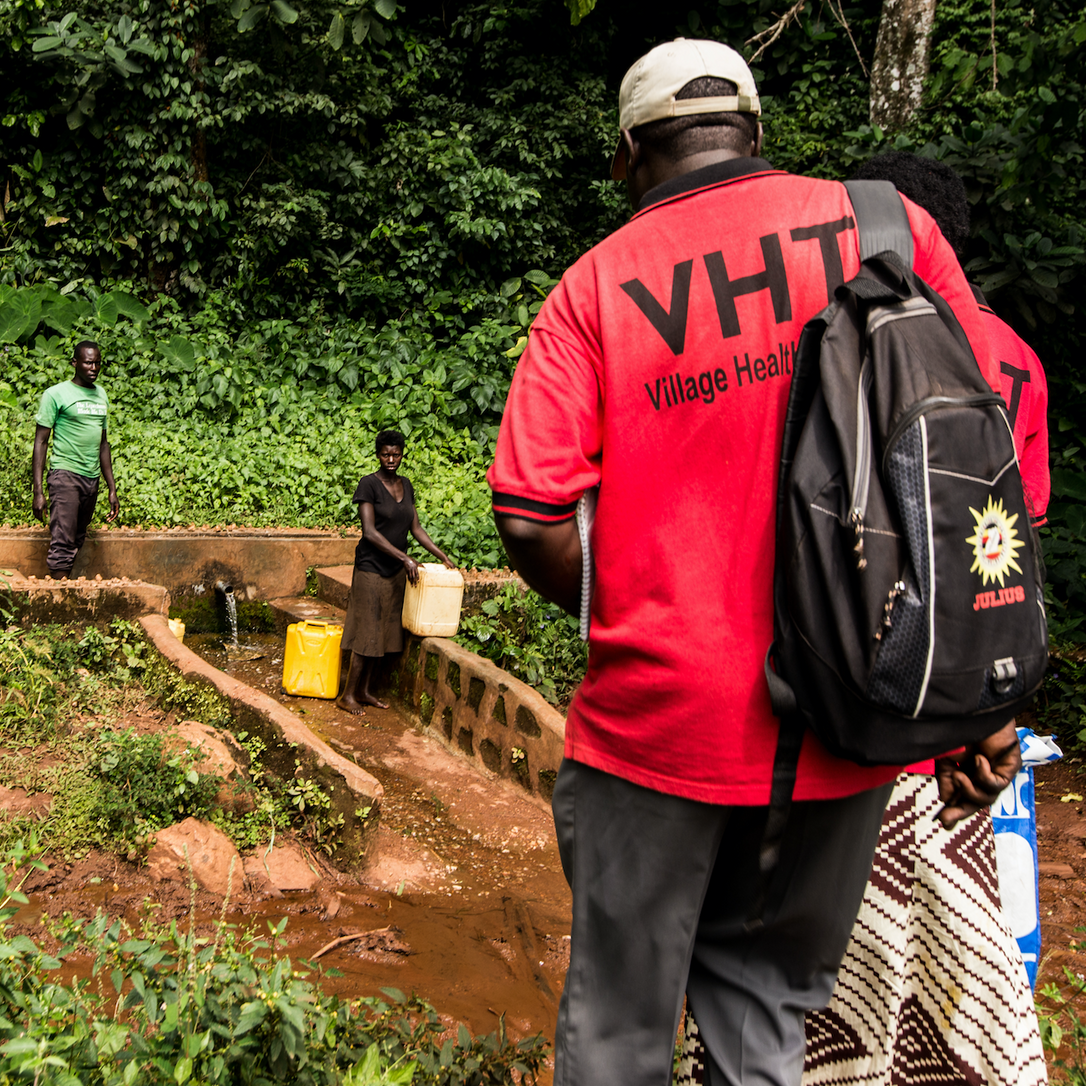
Our VHT Program Highlights.
Traveling village to village to make an impact.
Because of donors like you, we are able to continue to train and deploy our VHTs to people in rural Uganda. If you are interested in donating or sponsoring this program, visit our Support Us page and help more patients gain access to the life-saving care they need.

